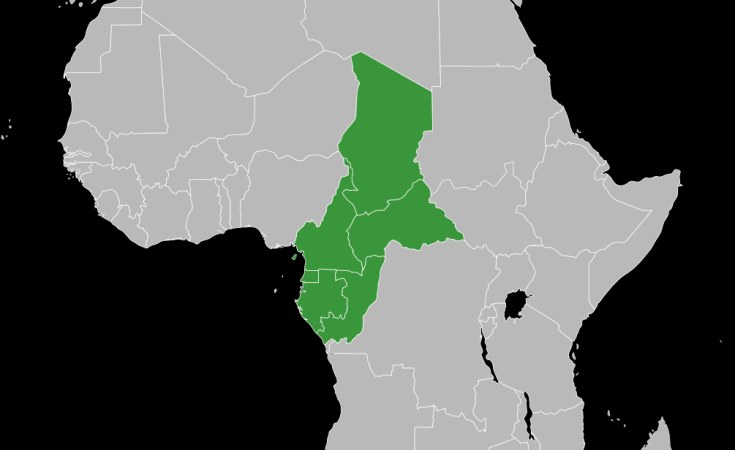Yaoundé, Cameroon — Central African economy ministers are calling for investing in energy and farming as Africa's poorest region struggles to recover from natural disasters, armed conflicts, and fallout from Russia's invasion of Ukraine. Heads of state from the six nations of regional bloc CEMAC meet Friday to discuss the challenges.
Economy and integration ministers of the Central African Economic and Monetary Community, CEMAC, say most of their 55 million civilians live in abject poverty that has only been made worse by the last few years of global troubles.
Ministers of the six-nation-bloc, which includes Cameroon, the Central African Republic, Chad, Equatorial Guinea, Gabon, and the Republic of Congo, met Thursday in Yaoundé.
President of CEMAC Daniel Ona Ondo, who was born in Gabon, said Russia's invasion of Ukraine is the latest in a series of global disasters to impact the region.
He said the ministers' meeting strongly recommended huge investments in agriculture and energy to end over dependency on imported food and petroleum products from Russia and Ukraine.
Before Russia's invasion of its neighbor, Central African states' imports from Russia and Ukraine accounted for 60 percent of their fuel and 80 percent of their wheat.
Last July, Cameroon, the Central African Republic, and Gabon reported fuel shortages they blamed on disruptions from Russia's war.
CEMAC says the war caused a sharp increase in prices that member states paid for fuel and fertilizers and added pressure on the region's farmers, who were already struggling from conflict and climate shocks.
Ondo said armed conflicts and political unrest in the region also added to the challenge for economies to recover from the COVID-19 pandemic.
Despite the setbacks, Cameroon's Minister of the Economy Alamine Ousman Mey voiced an optimistic outlook.
Mey is also president of CEMACs council of ministers of the economy and integration.
He said although central African states face many security and environmental shocks, and an influx of refugees and displaced persons, Cameroon, Chad, Equatorial Guinea, Gabon, the Central African Republic, and the Republic of Congo have shown resilience. Mey said the economic growth rate was maintained at three percent in 2022. He said CEMAC will always work for the interest of its people despite the challenging world economy and severe crises.
The ministers said they will propose a plan for improving conditions through energy and farming when heads of state meet in Yaoundé on March 17.
Ernest Moloua is an economist at the Cameroon's University of Buea.
He said the region's leaders should push harder for the free movement of people and goods as part of the African Continental Free Trade Area.
Speaking via messaging app from Buea, he says the trade deal provides a lot of opportunities for CEMAC if the heads of state take it seriously.
"The most important thing for CEMAC is to improve on public infrastructure, improve on the communication and telecommunication infrastructure, improvement of roads, improvement of railway links. When this happens then the region places itself in an advantageous position to reap the benefits that will come from the continental free trade area," said Moloua.
CEMAC says Friday's heads of state summit will focus on structural reforms to deal with the economic consequences of the COVID pandemic and Russia's war on Ukraine.


